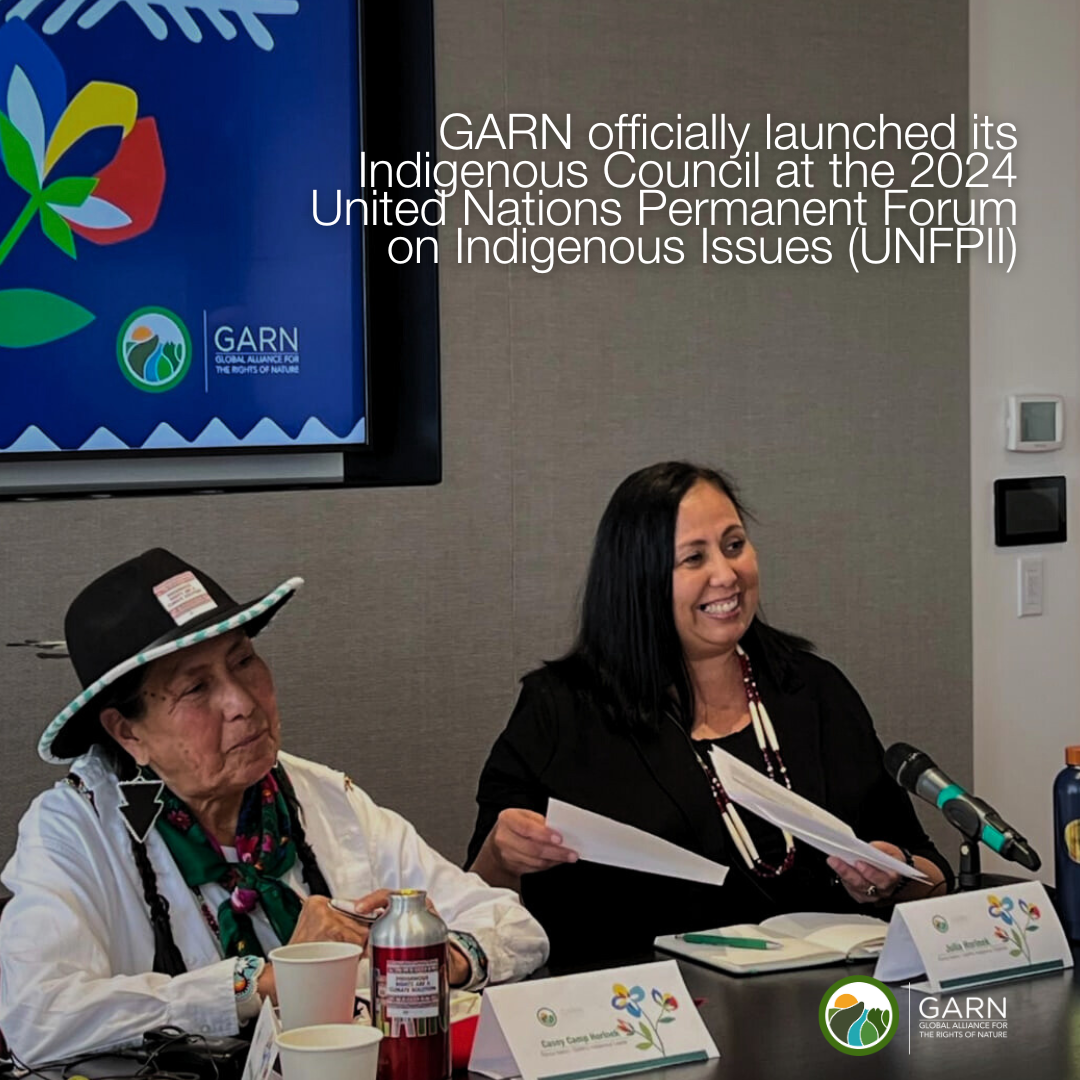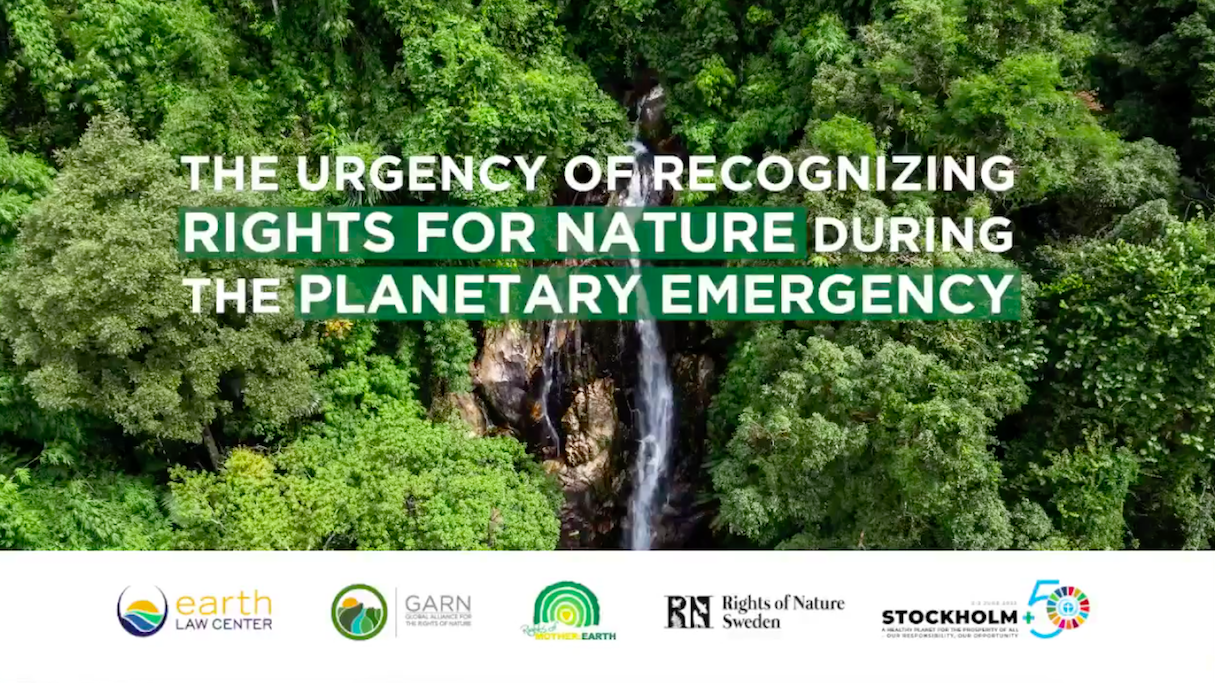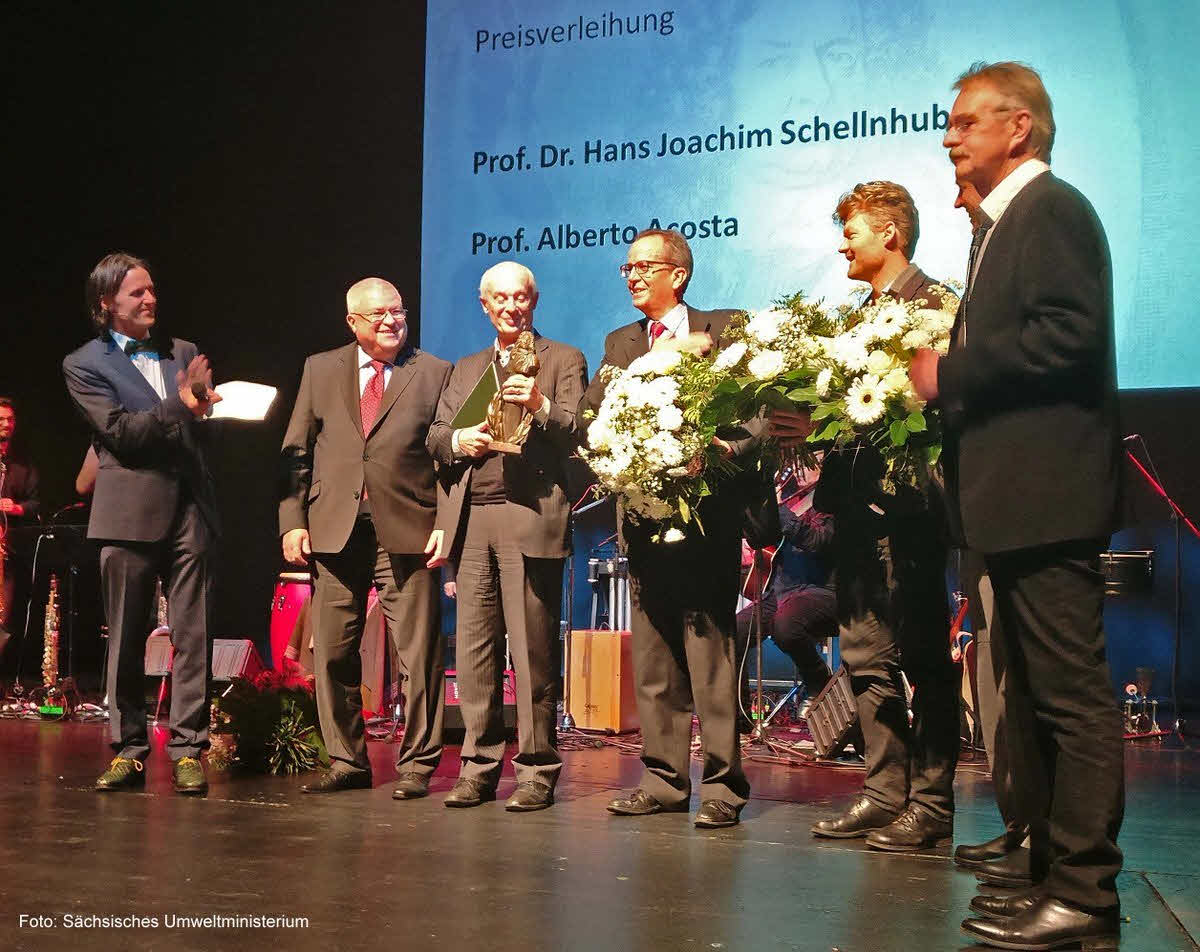Rights of Nature and Rio+20 – Seeds for the Future We Really Want
A Report from Robin Milam, Global Alliance for Rights of Nature http://www.therightsofnature.org
My intention for Rio+20 was very specific: to make a bold statement for our planet and offer the recognition of Rights of Nature as a viable, positive solution for our Earth Community. Rights of Nature is the recognition that the natural ecosystems that sustain us have the right to exist, to persist, maintain and regenerate their vital cycles. Today we treat nature as property to be bought, sold and consumed, much like we once treated slaves. As advocates for Rights of Nature, we propose it is time to recognize nature and its ecosystems as a subject of the law such that the ecosystems themselves can be named as a defendant of the law.
Rights of Nature offers the foundation for true sustainability that is so missing in the formal UN negotiations. Moreover, it is a viable solution that is gaining traction globally and in over two dozen communities in the United States and was enthusiastically embraced by many participants at the Rio+20 conference.
In the face of what we knew would be a dismal outcome for the formal negotiations, my Global Alliance colleagues and I achieved far more on behalf of Rights of Nature than we had expected. We are encouraged by the breadth of the response we received and by the creatively that has been stirred by the global focus on Rio+20.
Front and center, the Future We Want ─ the formal Rio+20 document ─ actually includes a statement acknowledging that Rights of Nature. We have lobbied for the last year to have Rights of Nature language in the final document and succeeded in that endeavor. Linda Sheehan of Earth Law Center was a galvanizing force for us within the UN.
Article 39. We recognize that the planet Earth and its ecosystems are our home and that Mother Earth is a common expression in a number of countries and regions and we note that some countries recognize the rights of nature in the context of the promotion of sustainable development. We are convinced that in order to achieve a just balance among the economic, social and environment needs of present and future generations, it is necessary to promote harmony with nature.
Furthermore, the UN published a beautiful coffee table book for Rio+20 entitled Future Perfect. www.uncsd2012.org/content/documents/Tudor Rose.pdf The first two chapters in Future Perfect are about Rights of Nature.
 The Rights of Mother Earth Signature Campaign http://rightsofmotherearth.com has a vision of gathering 1 million signatures in support of Rights of Nature. At this point, over 120,000 individuals from 113 countries and leaders of 186 organizations representing over 600,000 people have signed petitions. Among the distinguished signatories are Vandana Shiva, Desmond Tutu, Joanna Macy, Paul Hawken, Jack Canfield, Nnimmo Bassey, and many others. On June 21, the Rights of Mother Earth campaign delivered a package of signatures to UN Secretary-General Ban Ki-Moon. Later that day former Brazilian Senator Hercules Goes publicly presented the signature campaign document to President Dilma Rousseff of Brazil. Goes also arranged at least half a dozen interviews with UN Radio for the Global Alliance team and for Cormac Cullinan and Natalia Green to present a 30 minute Rights of Nature presentation on UN Television.
The Rights of Mother Earth Signature Campaign http://rightsofmotherearth.com has a vision of gathering 1 million signatures in support of Rights of Nature. At this point, over 120,000 individuals from 113 countries and leaders of 186 organizations representing over 600,000 people have signed petitions. Among the distinguished signatories are Vandana Shiva, Desmond Tutu, Joanna Macy, Paul Hawken, Jack Canfield, Nnimmo Bassey, and many others. On June 21, the Rights of Mother Earth campaign delivered a package of signatures to UN Secretary-General Ban Ki-Moon. Later that day former Brazilian Senator Hercules Goes publicly presented the signature campaign document to President Dilma Rousseff of Brazil. Goes also arranged at least half a dozen interviews with UN Radio for the Global Alliance team and for Cormac Cullinan and Natalia Green to present a 30 minute Rights of Nature presentation on UN Television.

 Rights of Nature was a major theme in at least a dozen side events. The Global Alliance hosted events inside Rio+20 and at the People’s Summit entitled Rights of Nature as a Foundation for Sustainability & Rights of Mother Earth Signing Ceremony. Hosts of other related events represent diverse entities including the Blue Pavilion (water and oceans ), Peoples Sustainability Treaties: Rights of Mother Earth, the government of Ecuador, the Women’s Earth and Climate Caucus, Future Governance beyond Rio, Vandana Shiva et. al.’s Visions of the Living Earth book signing event, Indigenous gatherings at Kari Oca2 and others. During Ecuador’s Rights of Nature and Bien Vivir event Cormac Cullinan publicly acknowledged President Correa and presented the results of our signature campaign, http://www.therightsofnature.org/rio20/president-correa-ecuador/,
Rights of Nature was a major theme in at least a dozen side events. The Global Alliance hosted events inside Rio+20 and at the People’s Summit entitled Rights of Nature as a Foundation for Sustainability & Rights of Mother Earth Signing Ceremony. Hosts of other related events represent diverse entities including the Blue Pavilion (water and oceans ), Peoples Sustainability Treaties: Rights of Mother Earth, the government of Ecuador, the Women’s Earth and Climate Caucus, Future Governance beyond Rio, Vandana Shiva et. al.’s Visions of the Living Earth book signing event, Indigenous gatherings at Kari Oca2 and others. During Ecuador’s Rights of Nature and Bien Vivir event Cormac Cullinan publicly acknowledged President Correa and presented the results of our signature campaign, http://www.therightsofnature.org/rio20/president-correa-ecuador/,
- Rights of Nature: Planting Seeds of Real Change, a collection of essays published by Global Exchange; http://www.globalexchange.org/communityrights/resources/rioreport
- Visions of the Living Earth: Future of Governance Post Rio, a collection of essays by Vandana Shiva, Leonardo Buff, and others;
- Bolivia distributed their Proposal for a Law of Mother Earth ;· Foundation Earth published their The Economic Rethink – Who Does It Well? http://www.fdnearth.org/ A report card for assessing what countries are taking “right actions” using Rights of Nature as a key criteria for assessing Rethinking our Economy Future Perfect by the Rio+20 UN Conference on Sustainable Development.


